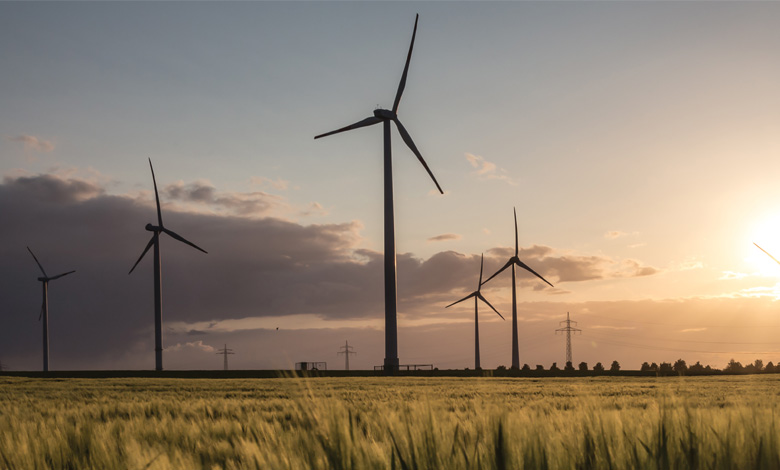
Short term gas outlook in Europe
30th May 2023
Planning for renewable energy
30th May 2023Renewable future: Unlocking economic potential

Northern Ireland needs a focus on a holistic and inclusive transformative change process, not just the de-fossiling of the present, if it is to reap the economic benefits, says Martin Doherty, centre manager of the Centre for Advanced Sustainable Energy (CASE).

The fact that change must happen when it comes to how we produce, store, and use energy is absolutely undeniable, not only for us here in Northern Ireland but right across the globe. We need to remove fossil fuels from our energy mix, and it needs to be done both rapidly, and thoughtfully.
The future of energy is utterly intrinsic to people’s quality of life, and the massive rises in energy costs have brought the issue to the fore in people’s minds in a way that it has seldom been seen before.
That is why the Centre for Advanced Sustainable Energy (CASE) is hosting the first Northern Ireland Energy Summit where we will present our policy document, Pathway to a Renewable Future. This document, which is being produced after a comprehensive stakeholder outreach process will showcase what we believe is a holistic and inclusive transformative change process that equips us for the economy of 2050 rather than simply de-fossilising the present.
After an encouraging start, Northern Ireland seems to have rested on its laurels and is allowing others to steal a march on progress to a net zero future.
The absence of the Assembly undoubtably adds to the complexity of making change happen but should not prevent it happening. The ascent of the Climate Change Act 2022 demonstrated that there is a political willingness to see a transformation in how we power our economy and lifestyles.
The ability to make decisions in a bold, ambitious and pragmatic manner is possible, as demonstrated by the actions of the Assembly during the recent pandemic. This whole systems approach to managing a national crisis is again required to overcome the fragmentation that energy developers and communities see when attempting to effect change.
The Climate Change Act mandates that government departments to act in a connected manner and act as enablers. Energy and decarbonisation cuts across economy, agriculture, environment, and infrastructure impacts everyone. Creating policy in isolation can result in missed opportunities to holistically address a larger scale problem. Joined up policy and departmental cooperation works better. For example, using agricultural waste streams to generate energy allows for rebalancing our economy whilst turning erstwhile pollutants into the building blocks of a biobased industry.
The ambition of the 10X strategy for the economy is not supported by our current energy plans. In fact, the goals for wind generation in Great Britain and Ireland, potentially in excess of 100 and 70GW respectively, over the coming decades dwarfs current Northern Ireland policy considerations. We must match our neighbours’ ambitious goals to amplify and leverage our own potential.
In short, our economy will struggle to compete as global markets demand zero-carbon supply chains, and to sustain carbon taxes as they ramp up by the end of the decade; unless we transform our energy supply and decarbonise. How do we achieve the investment required now, when Northern Ireland lacks the billions of pounds needed to invest annually from the public purse? Attracting capital investment is vital. Large, direct subsidies are mostly unaffordable, but strategically creating opportunities for low-risk with good returns, can stimulate investment. The CASE white paper will explore options for novel financing and experimental governance models that will stimulate the necessary debate about what changes we need to take to unlock our potential.
Recent CASE published research opened a new thinking on how we could heat our homes and power businesses with the clever utilisation of our biogenic resources (farm wastes for those outside agriculture).
The potential for biomethane is clear but represents only a small fraction of what can be achieved. Converting the CO2 content of biogas to e-methane with the addition of green hydrogen could give as much as 10 TWh of energy (biomethane + e-methane), more than enough to meet current gas demands.
“Our economy will struggle to compete as global markets demand zero carbon supply chains, and to sustain carbon taxes as they ramp up by the end of the decade; unless we transform our energy supply and decarbonise.”
Storing this green gas in gas caverns during the summer, when demand is low, gives energy resilience for winter months. A further circular economic and clustering approach would see the heat generated from these processes deployed as district heating for homes thus displacing even more of fossil fuel dependency.
Opportunities for such system-based approaches with clusters of businesses have been shown to be common across Northern Ireland and offer routes for local energy supply and decarbonisation as well as new products and services. Additionally, the social value in this approach is very high with the ability to provide locally generated low-cost heat to homes, schools and hospitals combined secure skilled employment.
A critical component of underpinning the necessary societal change will be increasing the carbon literacy of all. This will empower decision-makers and communities to ensure that energy transformation is equitable and a force for the better. There will be impacts in terms of infrastructure development, but we can ensure that they are weighted by greater community wealth and opportunity with the potential to eradicate fuel poverty.
We can learn from our past. Generations ago, seeding opportunity from renewable energy provided a platform for Northern Ireland to become a global, industrial powerhouse starting with linen production. We can do the same again. Northern Ireland has the wind, water, solar and biogenic resources to displace fossil fuels.
Achieving carbon neutrality alleviates and reduces the harm on health from fossil fuel pollution and the perilous dependency on uncertain foreign supply of oil and gas. We can once again harness the pioneering innovation and research that lead to our world leading role in textiles to become renewable technology haberdashers to a global marketplace.
This opportunity cannot be wasted, let us ensure we move forward together, with benefits for all.
Contact
E: Martin.Doherty@qub.ac.uk
W: www.nienergysummit.com

